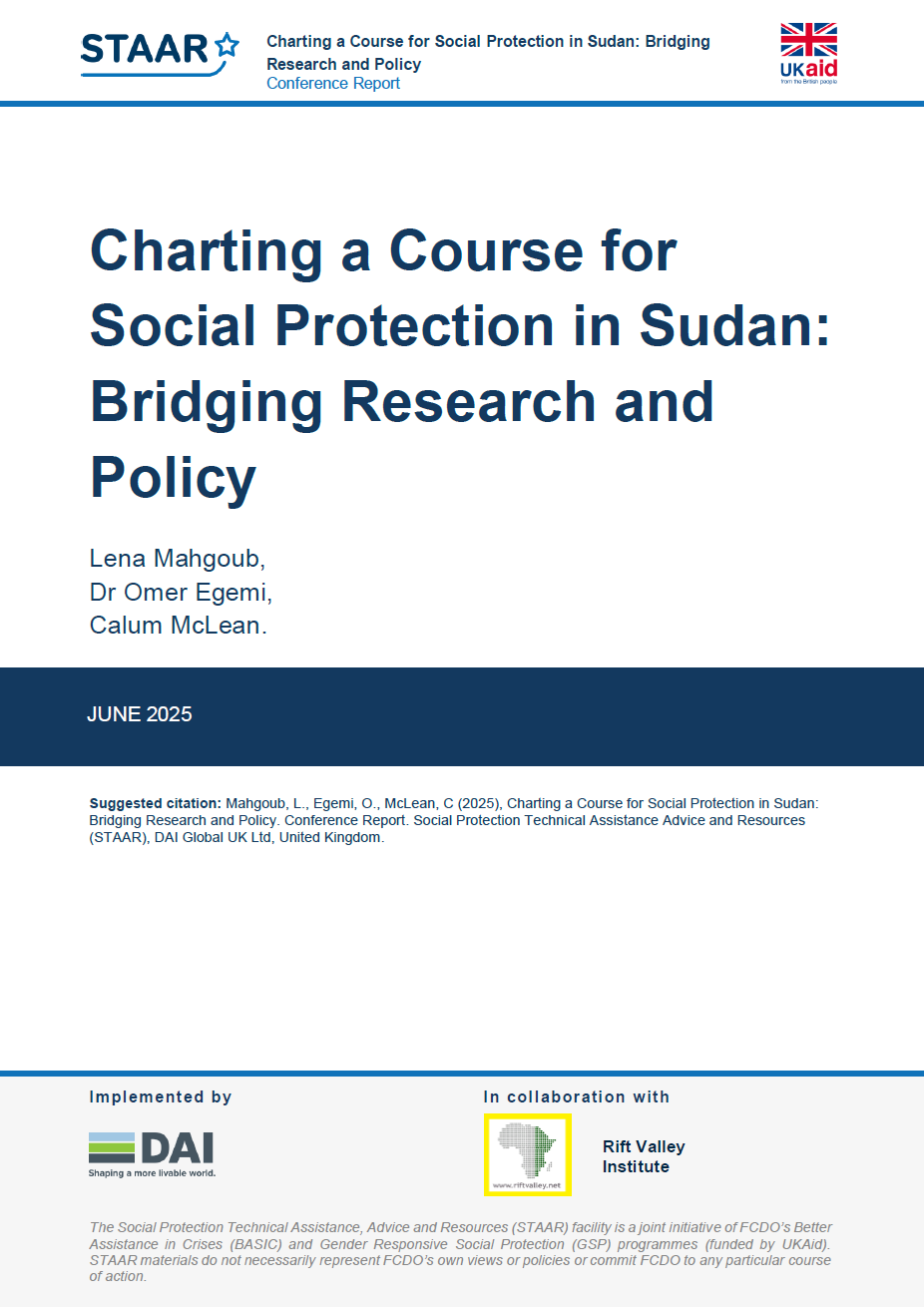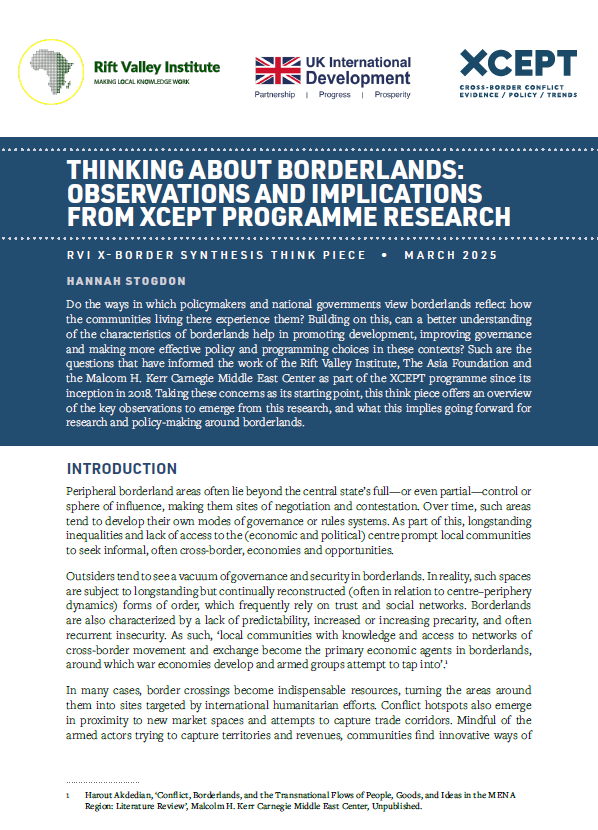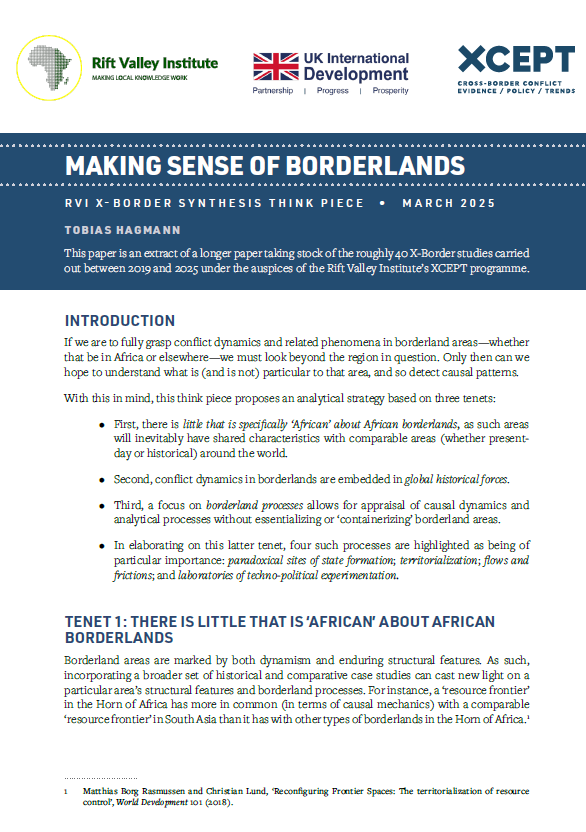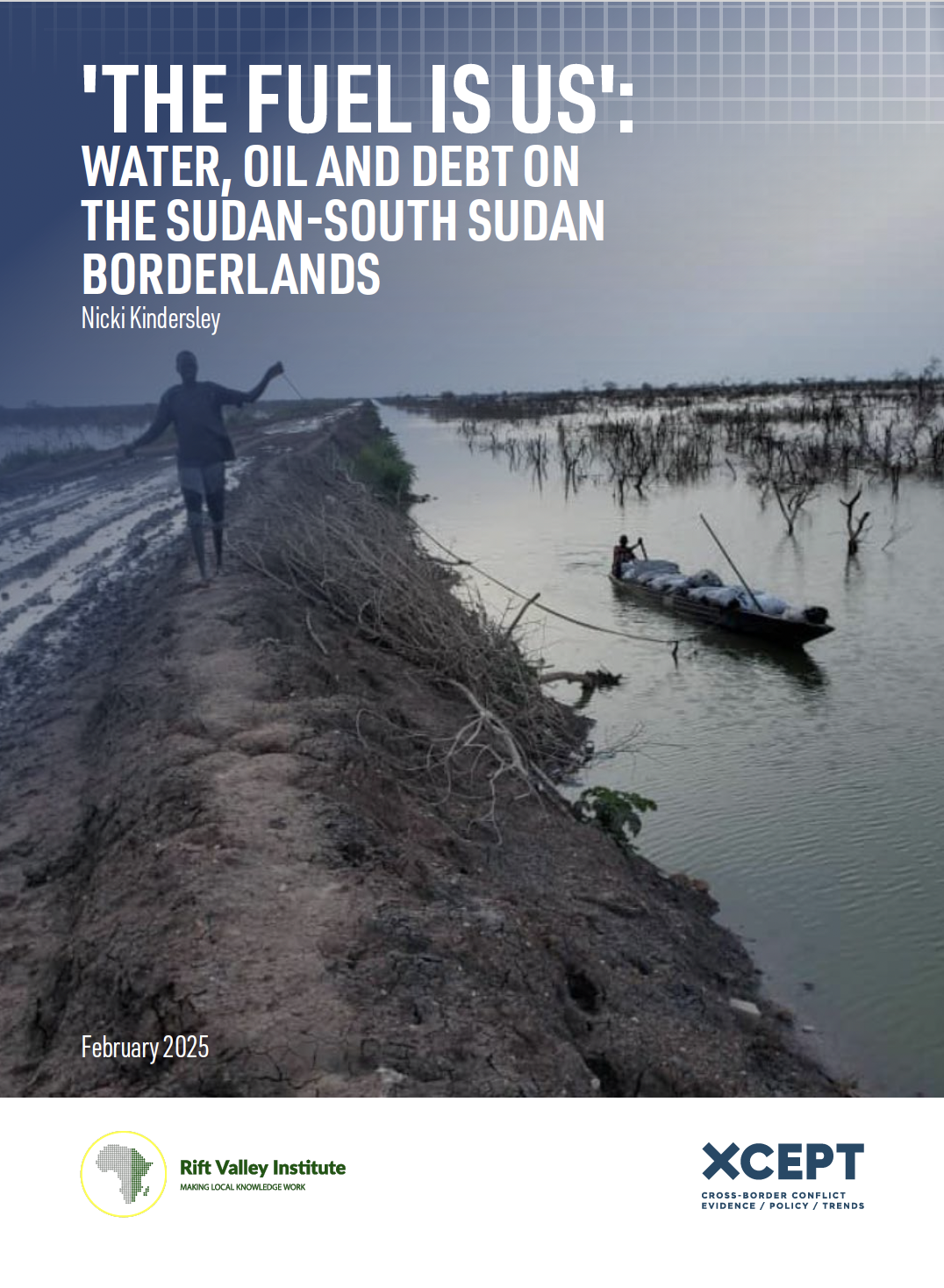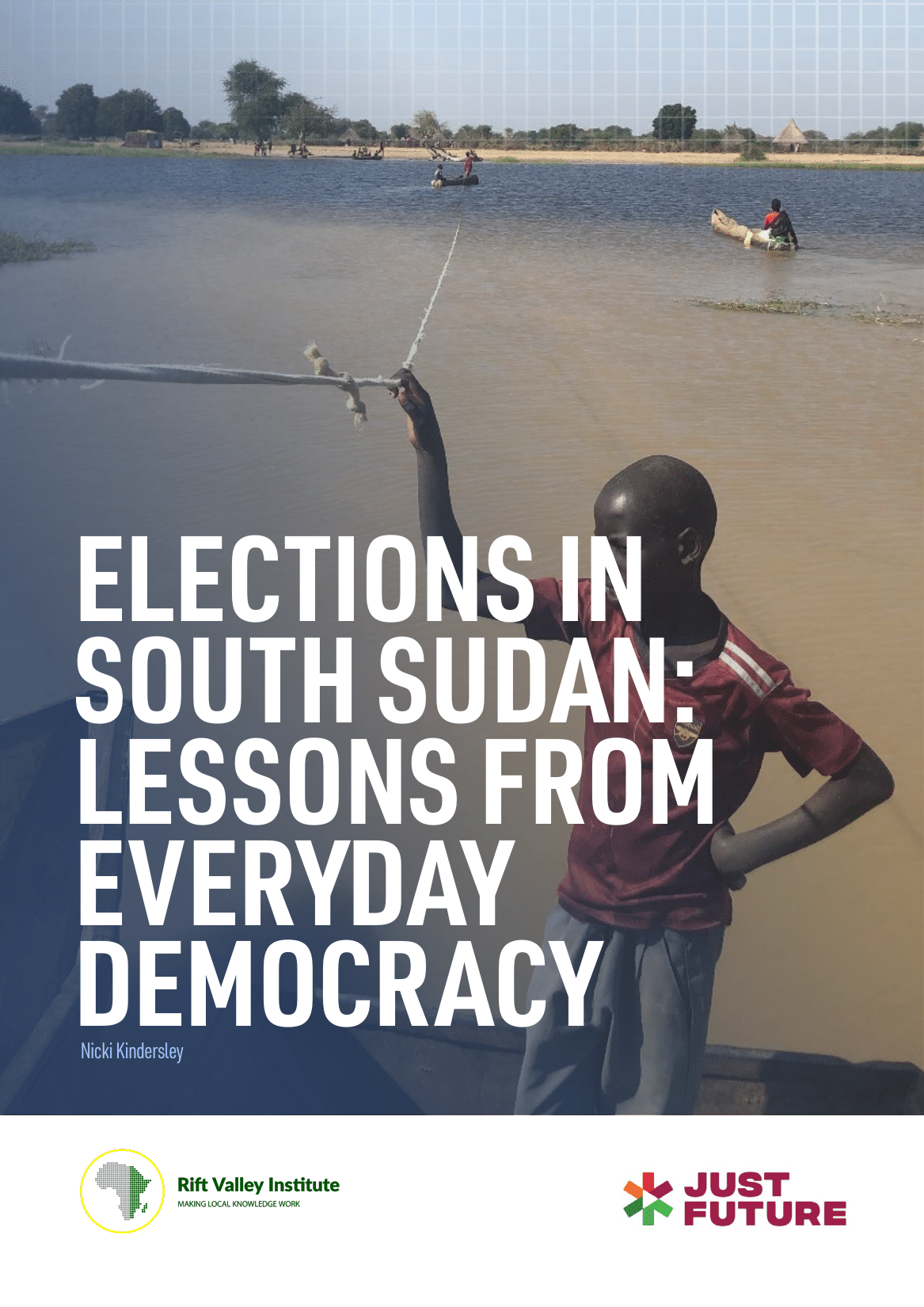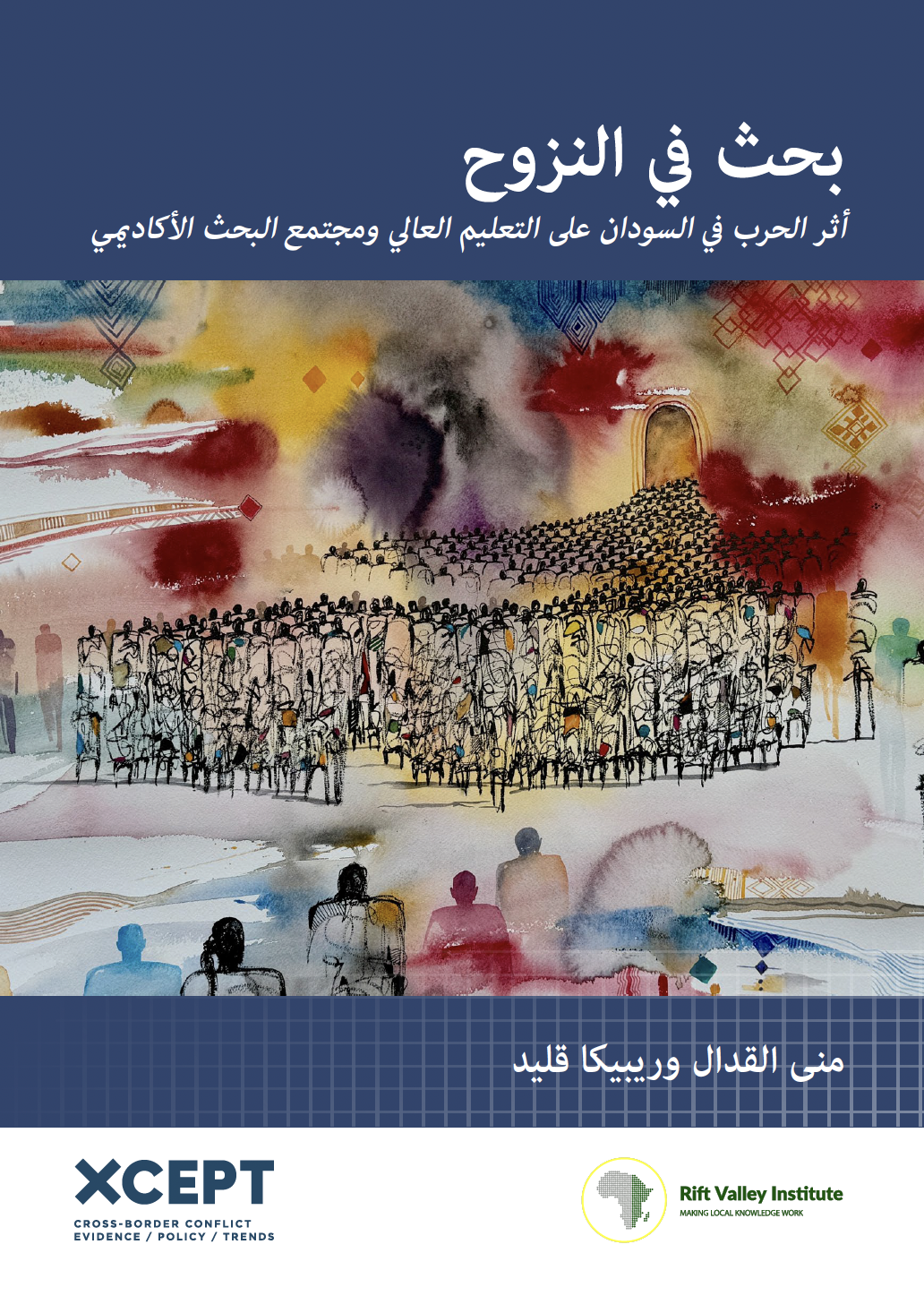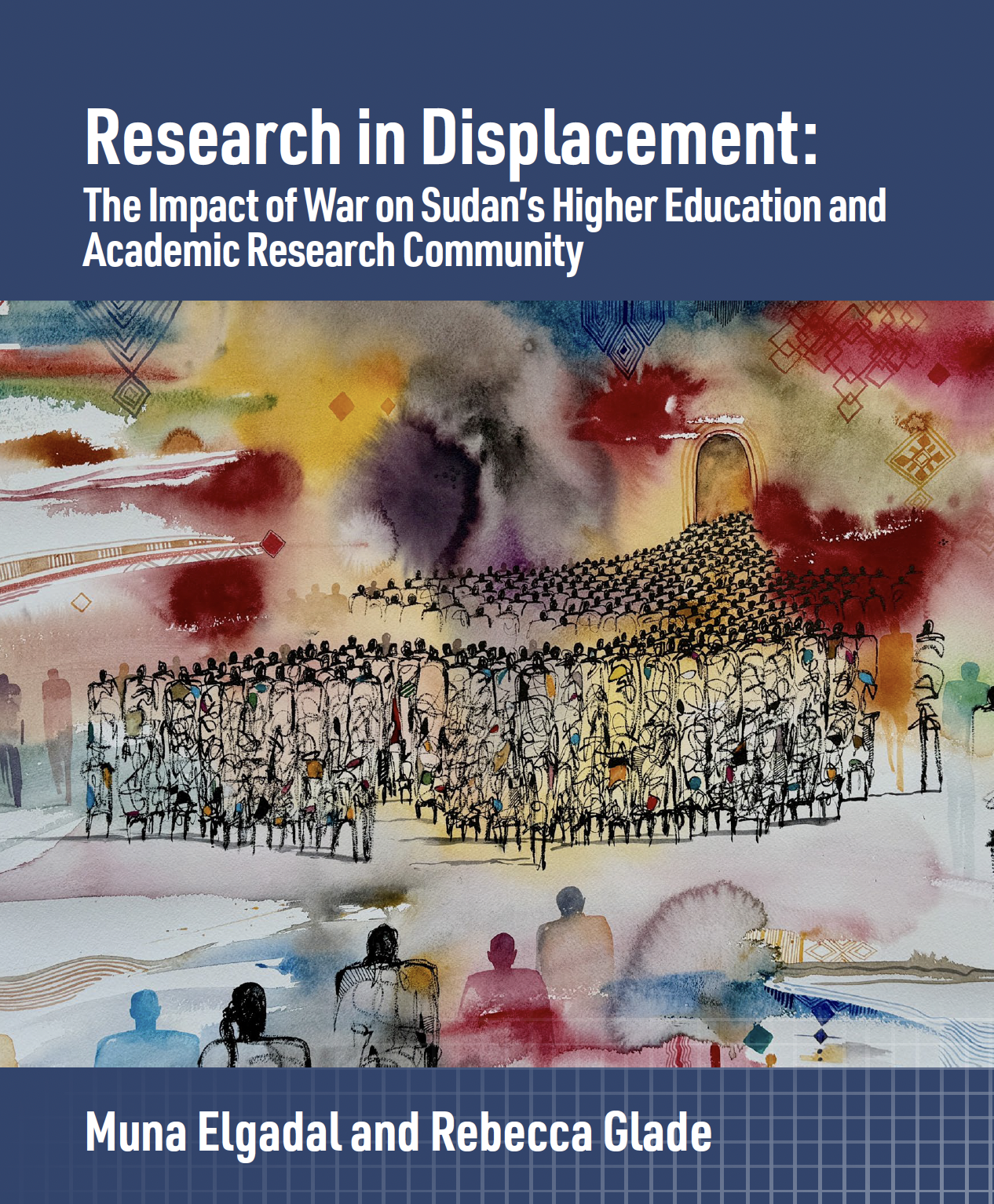The brief draws on a joint convening held in Kampala, Uganda, in November 2025, which brought together more than 45 Sudanese and South Sudanese participants representing more than 30 grassroots organizations and international NGOs. Its primary objective is to…
RVI publishes books, research reports, research papers, briefings and meeting reports in a range of formats. Publications cover policy, research, arts, culture and local knowledge in the countries of eastern and central Africa. Research publications—books, reports and papers—are peer-reviewed. Some RVI publications are also available in French and/or Arabic.
The RVI is a signatory of the Budapest Open Access Initiative (2001); all publications are free for download in PDF format under Creative Commons licences. The views expressed in books and reports published by the RVI are those of the authors, not the Institute.
SEARCH
PUBLICATION TYPE
LANGUAGE
REGION
COUNTRY
With the purpose of charting a course for social protection in Sudan that will bridge the gap between research and policy, facilitate dialogue among key stakeholders and contribute to developing a shared vision for social protection in Sudan, this…
Do the ways in which policymakers and national governments view borderlands reflect how the communities living there experience them? Building on this, can a better understanding of the characteristics of borderlands help in promoting development, improving governance and making…
This think piece is an extract of a longer paper taking stock of the roughly 40 X-Border studies carried out between 2019 and 2025 under the auspices of the Rift Valley Institute’s XCEPT programme. If we are to fully…

- By Mawal Marko Gatkuoth
- Download
This blog is part of the XCEPT project carried out by the Rift Valley Institute between May and June 2024. In this blog, the researcher draws heavily on his data from field observation and conversations with the respondents during…
South Sudan and Sudan’s borderlands are run by a patchwork of armed authorities. Since early 2019, when opposition forces were effectively wiped out, these zones of control have remained relatively fixed, even as the war in Sudan drew close…

- By Manal Abdulaziz Mudir
- Download
In this blog, Manal examines the pressures forcing many displaced people, including children, to seek paid labour to supplement dwindling support mechanisms in camps in South Sudan. The author draws on her research in 2024 as part of the…
South Sudanese people are suffering under economic and climatic crises and political stasis. The last two years have involved a rapid deterioration of basic living conditions and safety for the majority. Popular engagement with national elections must be understood…
أثر الحرب في السودان على التعليم العالي ومجتمع البحث الأكاديمي ملخص تنفيذي خلف اندلاع الحرب في السودان في أبريل 2023 دماراً ومعاناة لا حصر لها، مما شكل تهديداً لمؤسسات مهمة على امتداد القطر. ومن ضمنها مؤسسات التعليم العالي السودانية،…
SUMMARY The outbreak of war in Sudan in April 2023 has created immeasurable suffering and damage, threatening critical institutions across the country. Amongst these is Sudanese higher education, which has faced not only the destruction of critical facilities, but…
Recent Publications

Rethinking Aid in Sudan and South Sudan
January 28, 2026
The brief draws on a joint convening held in Kampala, Uganda, in November 2025, which brought together more than 45 Sudanese and South Sudanese participants representing more than 30 grassroots organizations and international NGOs. Its primary objective is to amplify

EWNET Writes: Writing Workshop Session I
December 18, 2025
The Ethiopian Women Researchers Network (EWNET) inaugural writing workshop series aims to not only provide women researchers with uninterrupted time for their scholarly projects, but also build a supportive academic community. The first session, entitled ‘EWNET Writes: Writing Workshop Session

SSC-Khaatumo: Perspectives on the significance and implications of its formation
December 12, 2025
On 15 April 2025, during a visit to the city of Las Anod in Sool, Prime Minister Hassan Abdi Barre officially declared the federal government’s recognition of SSC-Khaatumo (SSC-K hereafter) as a federal member state, marking an important milestone in

